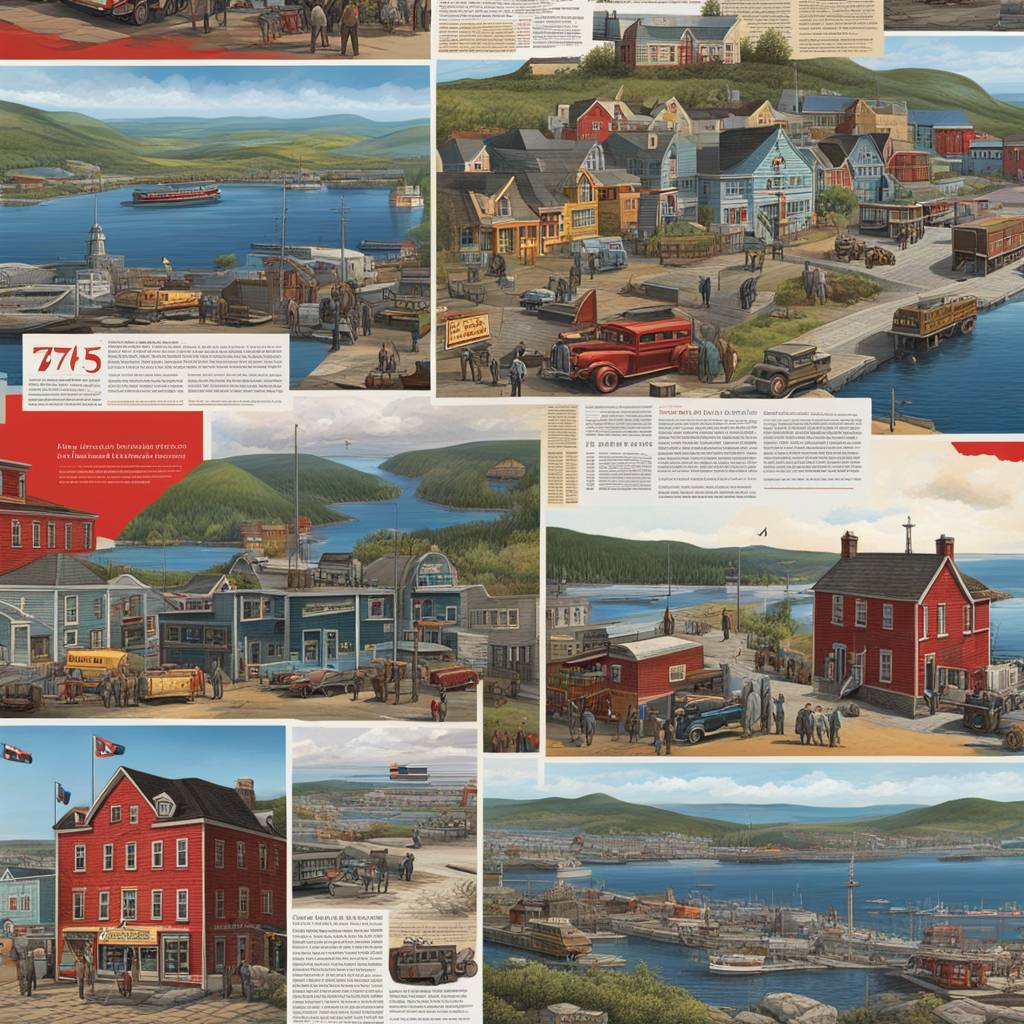Sunday marks the 75th anniversary of Newfoundland officially becoming part of Canada, a moment that continues to stir debate among Newfoundlanders. Despite the controversial referendum that made the island part of Confederation, residents have both questioned and celebrated the union over the years. To commemorate this occasion, the Newfoundland and Labrador government is offering special community grants, awards, and scholarships in 2024. They are also providing commemorative license plates with the Confederation 75 logo to people registering vehicles for the first time this year. The Rooms, the provincial archives and museum, has an exhibition called “Here We Made a Home” showcasing images and artifacts related to the historic final vote.
The 1934 Commission of Government ended responsible government in Newfoundland and was appointed by Britain to address the island’s financial challenges stemming from the First World War and the Great Depression. In the wake of these crises, officials believed that giving up self-government was the only solution to stabilize the island’s financial situation. Joey Smallwood, who led the campaign for Confederation, became known as “The Father of Confederation” and eventually became the province’s first premier. The referendum in 1948 offered three options: responsible government, union with Canada, or operation under British authority. Confederation narrowly won with 52.3% in the final vote.
The results of the referendum were contentious and have led to conspiracy theories being passed down through generations. Even today, there is debate about whether the union with Canada was forced upon Newfoundland or if it was a choice made by the people. Greg Malone, a well-known Newfoundland actor and writer, challenged the Confederation narrative in his book “Don’t Tell the Newfoundlanders,” exploring the strategic and financial reasons behind the union. Malone’s research uncovered secret correspondence between Canada and Britain, highlighting the controversial nature of the referendum and the financial interests at play. The decision to join Canada set the stage for decades of tense relations with Ottawa over issues like fisheries and offshore oil.
While some argue that joining Canada provided more security and opportunities for Newfoundlanders to move freely within the country, others believe that the promises of prosperity post-Confederation have not materialized as expected. The debate over whether Newfoundland was better off post-Confederation than it would have been otherwise remains unresolved. Some believe that an apology from Canada for the way the union was executed could help heal wounds and improve relations. Ultimately, the question of how different Newfoundland’s history would have been if it had made a different choice will likely continue to spark debate for years to come.













